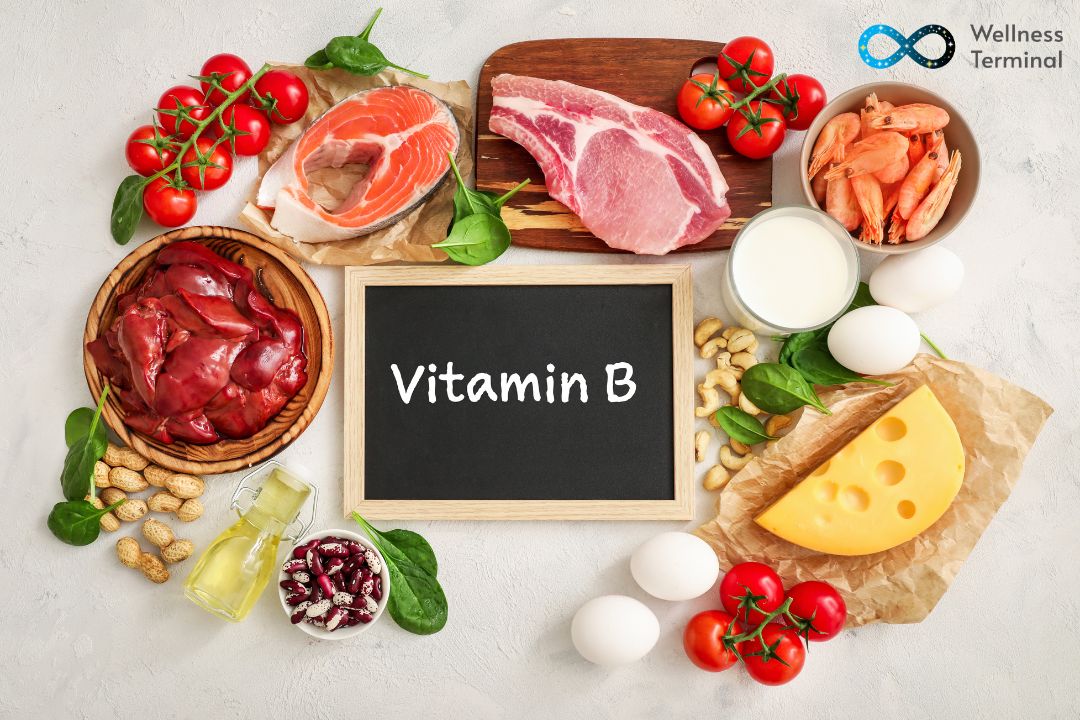Are you familiar with vitamin B supplements? There are actually several different types of vitamin B, each with its own unique functions and benefits. We'll delve more deeply into the realm of vitamin B in this blog article as we examine the various forms and their functions.
First, let's discuss the significance of vitamin B. Maintaining our general health and wellness depends heavily on our vitamin B consumption. To mention a few advantages, it supports good brain function, encourages healthy skin and hair, and strengthens our immune system. It also aids in the conversion of food into energy in our bodies.
There are eight main forms of vitamin B, and each has unique uses and advantages:
- Thiamin (B1): Thiamin helps our bodies convert food into energy and supports healthy brain function. It also plays a role in nerve function and muscle contraction.
- Riboflavin (B2): Riboflavin also helps with energy production and supports healthy skin, eyes, and brain function.
- Niacin (B3): Niacin helps with energy production and supports healthy cholesterol levels. It also supports healthy skin and digestive function.
- Pantothenic acid (B5): Pantothenic acid helps with energy production and supports healthy adrenal function. It also plays a role in the production of hormones and cholesterol.
- Pyridoxine (B6): Pyridoxine helps our bodies produce neurotransmitters, which are essential for healthy brain function. It also supports healthy immune function and red blood cell production.
- Biotin (B7): Biotin is important for healthy skin, hair, and nails. It also helps our bodies metabolize fats and carbohydrates.
- Folate (B9): Folate is important for healthy fetal development during pregnancy. It also plays a role in red blood cell production and supports healthy brain function.
- Cobalamin (B12): Cobalamin helps our bodies produce red blood cells and supports healthy nerve function. It also plays a role in DNA synthesis and energy production.
After discussing the various forms of vitamin B, let's discuss how you might include them in your diet. Meat, fish, eggs, dairy products, whole grains, and leafy green vegetables are just a few of the foods that are rich in vitamin B. However, supplements can also be a smart alternative if your diet isn't providing enough vitamin B.

It's crucial to remember that consuming too much of some forms of vitamin B can have unfavorable side effects. For example, taking high doses of niacin can cause flushing, itching, and stomach upset. Taking high doses of vitamin B6 can cause nerve damage in the arms and legs. That's why it's important to talk to your doctor or a qualified healthcare professional before starting any new supplement regimen.
In conclusion, vitamin B is a crucial part of our overall health and wellness. Each type of vitamin B has its own unique functions and benefits, from energy production to brain function to healthy skin and hair. Incorporating vitamin B-rich foods into your diet or taking a supplement can be a great way to support your health, but it's important to do so under the guidance of a healthcare professional.
So, make sure you're getting enough vitamin B in your diet and let it help you live your healthiest life!

